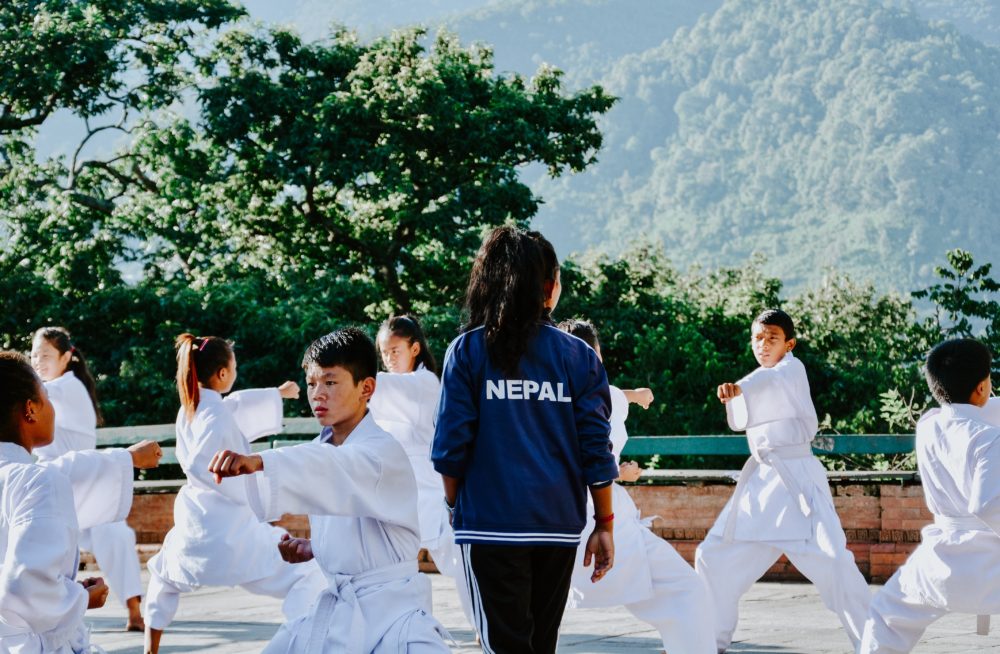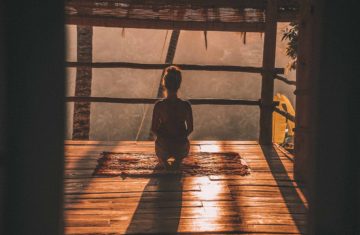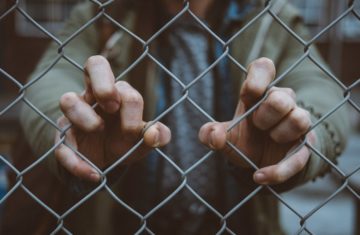Do you know the most repeated phrase in the enormous Book of Ninja? “To be orally transmitted.” Again and again, The Book of Ninja reminds the reader that the details and essence of the teaching reside outside of the words on the scroll. That’s because the way of ninjutsu is an oral tradition, above all else. Its truth travels from person to person, not text to person. Certainly, this protects the secrecy of ninja traditions. But there’s also a bigger truth at play: wisdom is embodied. And because wisdom is embodied, it can only be transmitted through relationship.
Ninja training, as far as we can tell, centered around relationship. A teacher or master would take on students as apprentices. Students would shadow the teacher, watch and learn, practice, listen. The training process took time and devotion. For the ninja, wisdom is not an intellectual pursuit, but a holistic one encompassing mind, body, and soul. And you can’t pass along holistic wisdom through non-holistic means.
Embodied wisdom takes on an entirely different quality. It’s whole, for one thing. While intellectual knowledge can feel piecemeal and lack context, embodied wisdom encompasses the whole person. It’s not the kind of knowing that rests only above your shoulders. It is a full way of knowing.
In my own religious tradition, apprenticeship (more frequently called discipleship) took a huge downturn when scripture became readily available to the masses. While beneficial in many ways, I’m not sure we understood then how this would change the way our faith was lived and understood. Centuries later, many people are reading the same text without having been taught its context, or embodied meaning. Relying too rigidly on a scripture can be so misleading.
You see the same trend in all of the major religions, as well as political movements. Without history, without context, without wise teachers to explain the meaning behind the words or ritual, our traditions become bereft of their fullness. They become empty, or distorted.
I wonder how religions might differ today if, like the Book of Ninja, we were given frequent reminders in the text that these truths are meant to be orally transmitted, and cannot be known fully in this one document.
The importance of oral history has come to my mind in a more personal way recently as well. The other day at my parents’ house, my mother’s birth certificate happened to be out on the table. I noticed, to my horror, that two major details about my grandparents were wrong. First, it listed my grandfather as Syrian (he’s Lebanese) and second, it said my grandmother was born in Mexico City (she was born in Freetown, Sierra Leone, Africa). My mom said the nurse had filled the paper out wrong, and my grandfather didn’t find it necessary to fix it. It was close enough.
But it’s not close enough. Syria and Lebanon share many things in common, but they are distinct cultures. My grandfather was a definitively Lebanese man, and proud of it. And despite the many years my grandmother lived in Mexico City, her story began in Africa. Her stories about her childhood in Africa remain some of the most vivid and cherished stories I remember her sharing with me. They defined who she was and how she came to see the world. These are not just false details on a birth certificate. It’s an erasure of history.
Later that day, I came home and told my children about the mistaken birth certificate. I didn’t want them to question the oral history of our family after I’m dead and gone, and rely on this nurse’s hasty recording. Because it’s their history, too. They are who they are because of who my grandparents were as Lebanese people who grew up in multiple places around the globe. The wisdom my grandparents have passed on is embodied in their stories. So it’s imperative that we honor the fullness of the stories they lived.
One of the most profound lessons I learned as I have attempted to understand the ancient world of the ninja is that their oral history is to be trusted above all. Above fancy Western historians with PhDs. Above Hollywood’s appropriation of their image. Even above Japan’s predominately samurai-honoring narratives of history. The ninja lived in the shadows. They intentionally chose not to leave their secrets or their heritage written on scrolls. They left their wisdom embodied in their children and apprentices. And if we want to know what wisdom they most wanted us to continue, we will find it not in the Book of Ninja but in the mouths and hearts of those who carry the story forward.
Where else do you see the loss of embodied wisdom? What would it look like to find our way back into an embodied way of knowing?
Yesterday was my taekwondo teacher’s birthday. I’m so grateful to Master Lee for embodying the wisdom of his tradition and guiding us so well as we seek to carry it forward. Much love and appreciation to all the masters and teachers who so lovingly and fully offer their wisdom to others.




